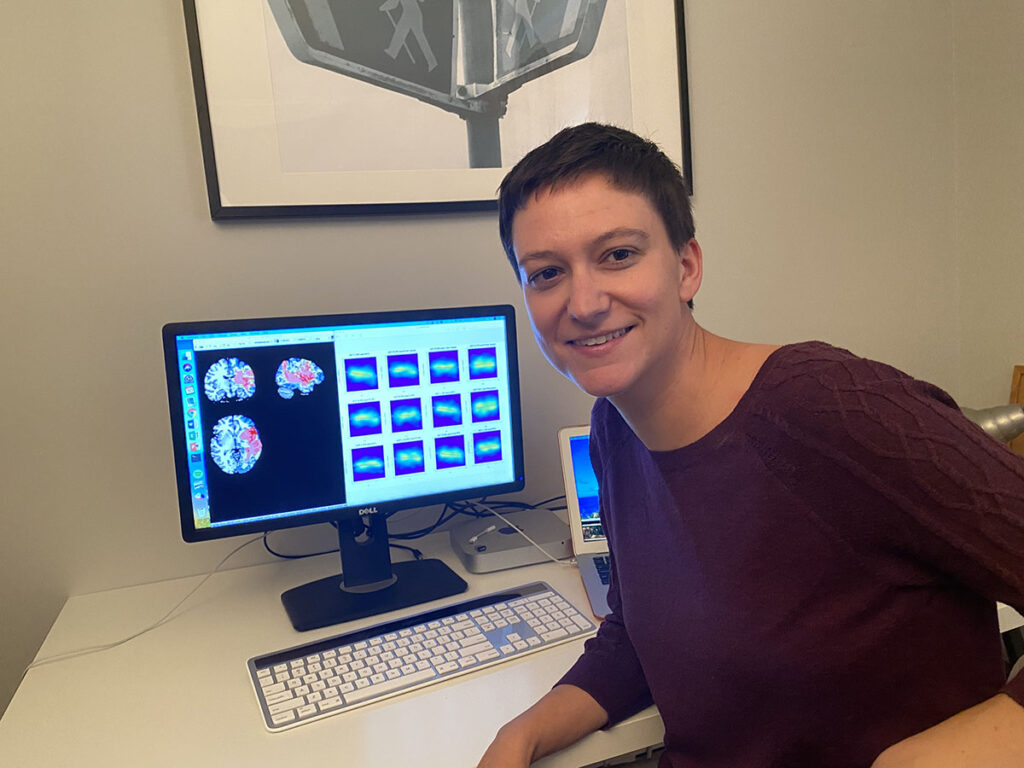Notice of Online Archive
This page is no longer being updated and remains online for informational and historical purposes only. The information is accurate as of the last page update.
For questions about page contents, contact the Communications Division.
Meghan Caulfield ’06, Mendel Science Fellow in the Department of Psychological and Brain Sciences at Villanova University
By Bryan Hay
Anxiety disorders are the most common mental illnesses in the United States, but little is known about why some people develop them and others do not.
Meghan Caulfield ’06 (psychology) is determined to help find answers.
“I am motivated to bridge this gap in our understanding of anxiety, as it is easy to see how advances in treatment and prevention would have a very real impact on many lives,” says Caulfield, Mendel Science Fellow in the Department of Psychological and Brain Sciences at Villanova University.

Meghan Caulfield ’06
“My research tries to understand the cognitive factors that contribute to risk for anxiety,” she says. “I look for differences in attention, learning, and memory by comparing people with personality types that place them at greater risk for anxiety with those who are more resilient to anxiety disorders.”
Caulfield then links those differences to neural activity through the use of noninvasive brain imaging methods. This research is promising for multiple reasons, she explains.
“First, it could improve prevention and diagnosis. By knowing which individuals are more at risk for anxiety disorders, clinicians can implement strategies to enhance resilience to stress or identify those who may need to be monitored closely and assessed regularly for symptoms indicating a transition to clinical anxiety,” she says. “Second, this research could help inform better treatment strategies by contributing to knowledge about the cognitive and neural contributions to anxiety disorders.”
Asked how her STEM education at Lafayette prepared her for graduate school, Caulfield points to the opportunity to engage in research.
“As an EXCEL Scholar, I was able to have key experience in conducting research full time and working within a lab setting,” she says. “I also gained crucial experience developing independent research with mentors through advanced research opportunities, which helped me to gain confidence and hone my abilities to develop research ideas while working one-on-one with professors.”
Read about other STEM Stars.
